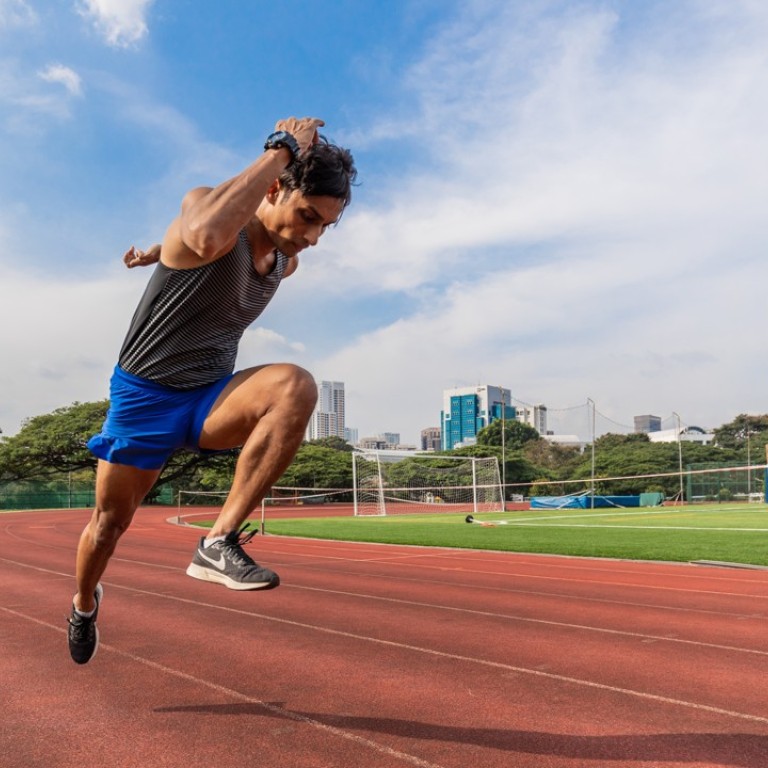
How world’s fastest Singaporean stays in shape into his 40s: UK Shyam talks about diet and the importance of strength training
The Lion City’s 100-metre sprint record holder shows no signs of slowing down, 17 years after he broke the national record which had stood for 33 years – in a time no one has bettered since. He reveals the secret to keeping fit as you age
He made headlines in Singapore in 2001, when he broke the 33-year-old national record for the 100-metre sprint with a time of 10.37 seconds at the World University Games in Beijing (the previous national record of 10.38 seconds had been set by Singaporean sprinter Canagasabai Kunalan in 1968).
Barely a month later, when he was still 25, he equalled his own record at the 21st SEA Games in Kuala Lumpur to take a silver medal. To this day his record remains unbroken.
Back then, Singaporean media couldn’t get enough of Umaglia Kancanangai Shyam Dhuleep, otherwise known as UK Shyam, and brands including Nike and Tag Heuer were keen to have him endorse their products.
He later went on to win more accolades for his country – a silver medal for the 4 x 100-metre men’s relay at the 22nd SEA Games in Hanoi in 2003; and a bronze medal in the same event at the 23rd SEA Games in Manila in 2005. Between 2001 and 2003, he was ranked No. 1 in Singapore for the 100-metre men’s sprint.
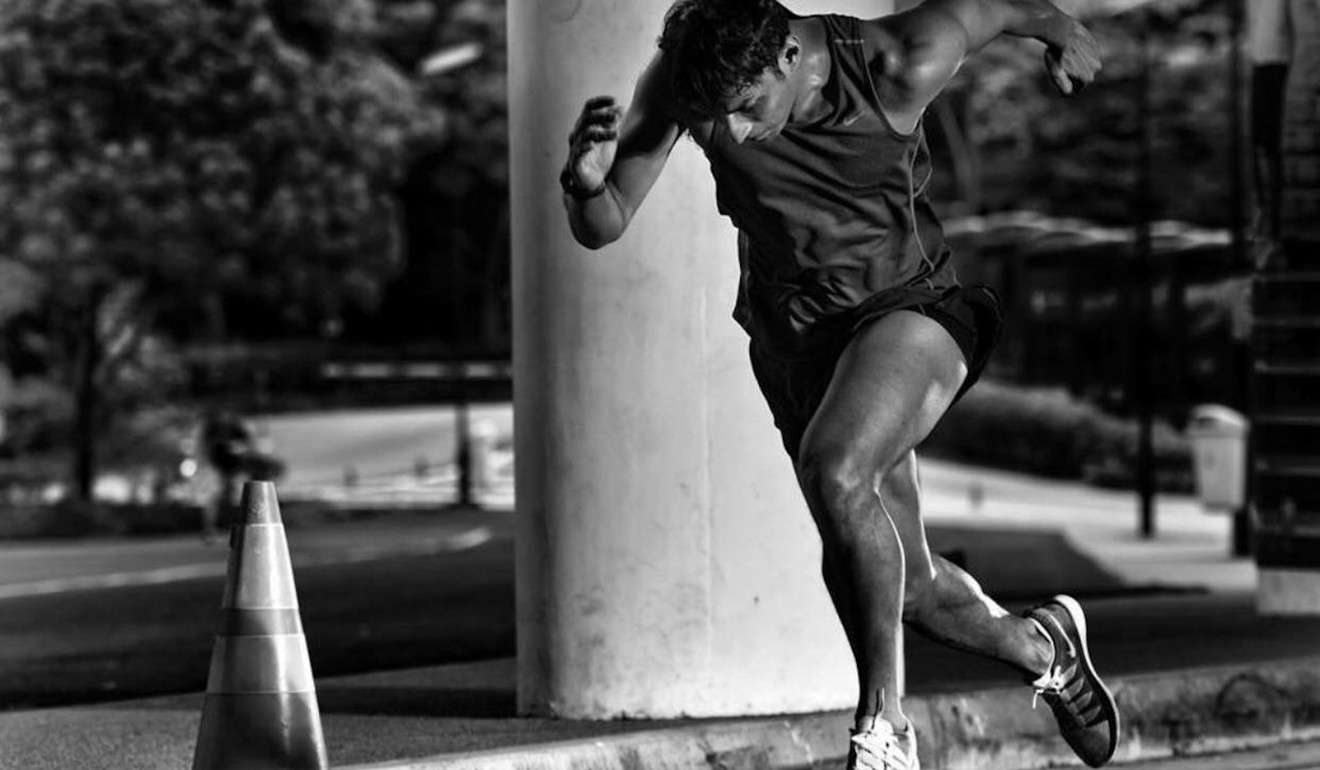
Today, life is a little quieter. At 42, he no longer competes, is happily married, and teaches philosophy at a junior college in Singapore. He still lives an active lifestyle and maintains a moderate training regime. He is also honorary secretary of the Chiam See Tong Sports Fund, a charity to help underprivileged athletes excel in their sport.
His book Running on Empty: The Story Behind 0.01s, a memoir of sorts, is expected to launch this summer. Here, he gives us a glimpse of his story, shares his thoughts on staying in shape after 40, and emphasises the importance of exposing children to sport.
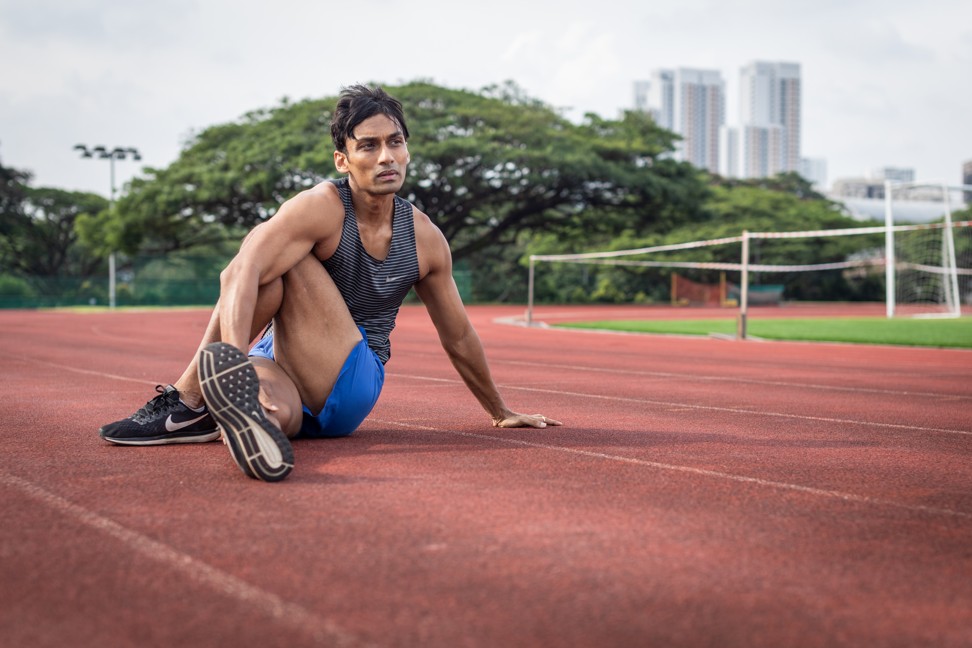
Why is helping the sports fund so important to you?
Strength training is important, too … It builds muscle, reduces fat, increases your metabolism, improves bone density, and staves off the physical aspects of ageing
Before I set the national record I was broke, and unable to achieve my athletic dream. All my savings had gone towards a down payment to study at a foreign university, and I lost it all when my sports association told me they couldn’t give me financial support to further my education.
I’m from a single-parent family. My mother wasn’t earning much and her health wasn’t that great. I took a job as a waiter … and would sometimes finish leftovers from customers’ plates.
Hong Kong Olympian’s swimming school teaches kids life skills, too
I was Singapore’s fastest sprinter at the time but had yet to break Kunalan’s record. I had no coach, minimal financial support … and no place in university. I was also doing my National Service … I quit running because I felt that our sporting system didn’t support my dreams.
Getting involved with the fund felt like the right thing to do … The system is better now but it’s still not perfect, so we should help people who fall through the cracks.
I ran for my country and now see it as my duty to help other Singaporeans with their sporting dreams.
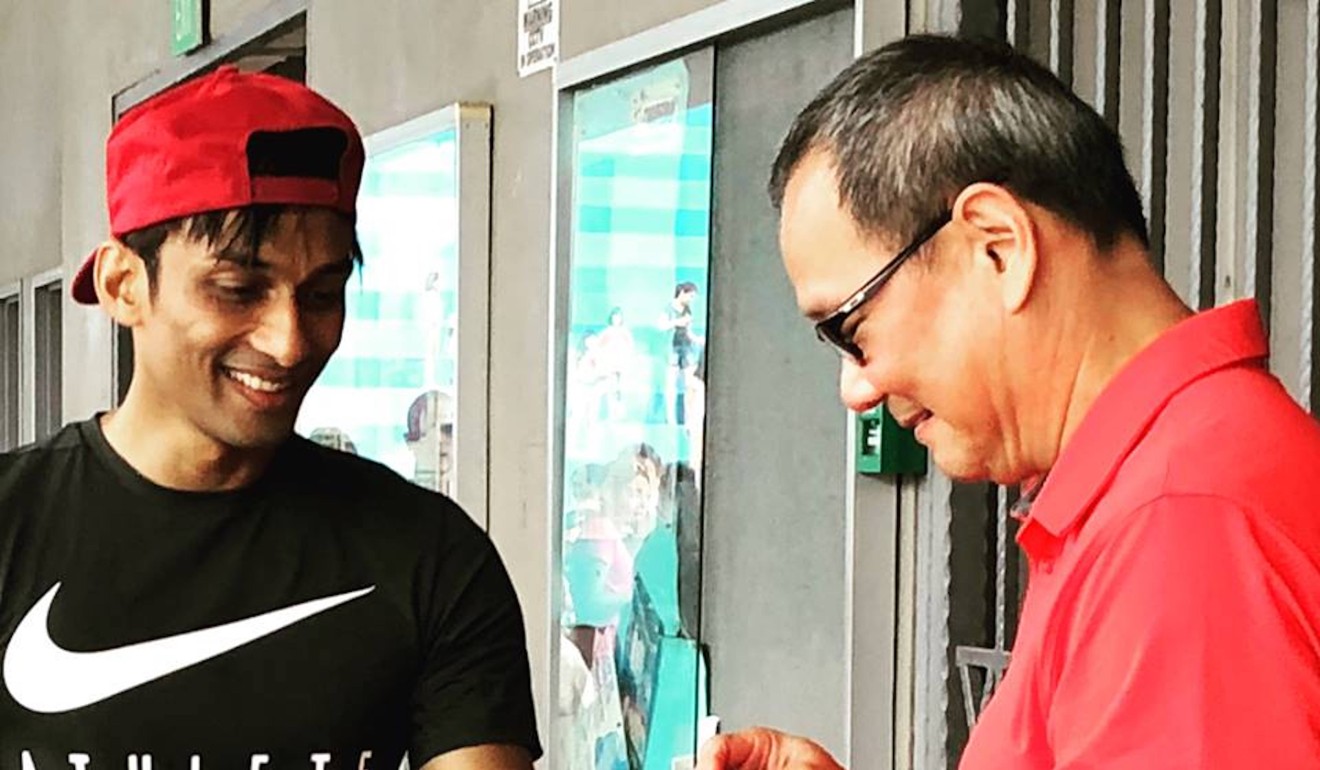
How did you get back into running after you quit?
Retired Singapore national swimmer Ang Peng Siong … gave me a job at his swim school so that I could earn an income. That in itself was empowering and restored my sense of dignity. Then he made me start training again, bought me training equipment and helped me in the gym. It meant so much to me because, for the longest time, I’d been training alone.
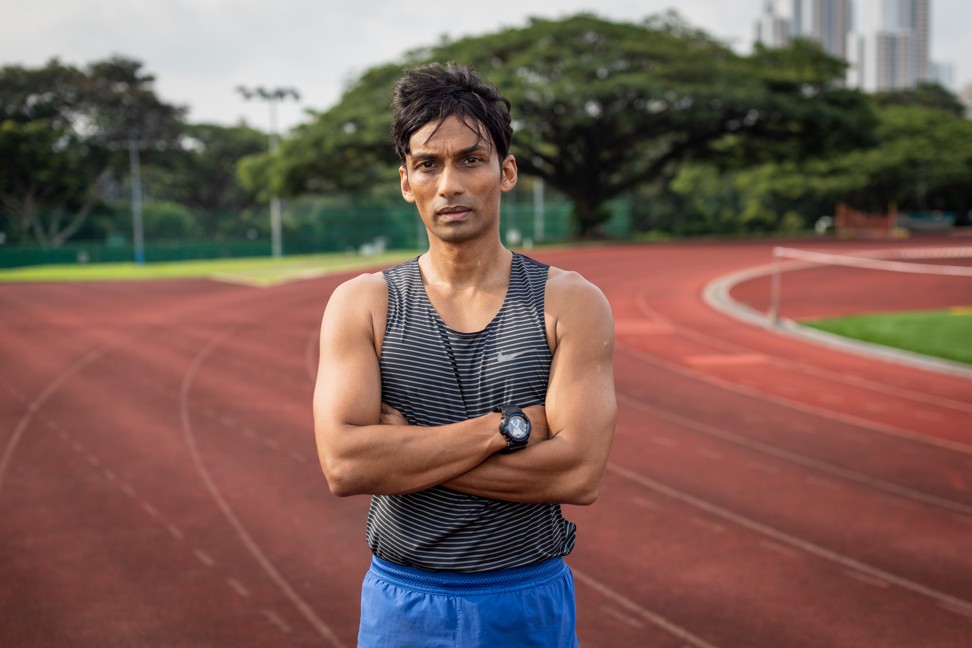
You’ve retired from competition, so why are you still in training?
When I was a full-time athlete … I trained twice a day, just about every day. My training schedule was … geared to specific goals, like making a specific time or winning a particular competition.
I still do some sprint training and strength training, but obviously with less intensity, since it’s recreational now, and perhaps just four or five times a week.
It’s important for me to stay in shape and to avoid becoming skinny-fat – that is, lean on the outside and unhealthy on the inside. I also enjoy feeling strong. Sprinting itself is still exhilarating to me.
102-year-old Masters Games runner and her wheatgrass breakfasts
What are your eating habits?
I don’t really follow any particular diet. If anything, I try to avoid sugary soft drinks – they’re my biggest weakness. On a typical day, I might have a green smoothie made from pea protein and kale for breakfast. For my other meals, I tend to consume a lot of greens, fruit and high-protein foods like tofu. I don’t eat a lot of red meat or refined carbohydrates like instant noodles – they make me feel heavy and bloated.
I don’t count calories … I just try to make sure that whatever I consume is nourishing and packed with nutrients. And I like eating several small meals throughout the day to speed up my metabolism.
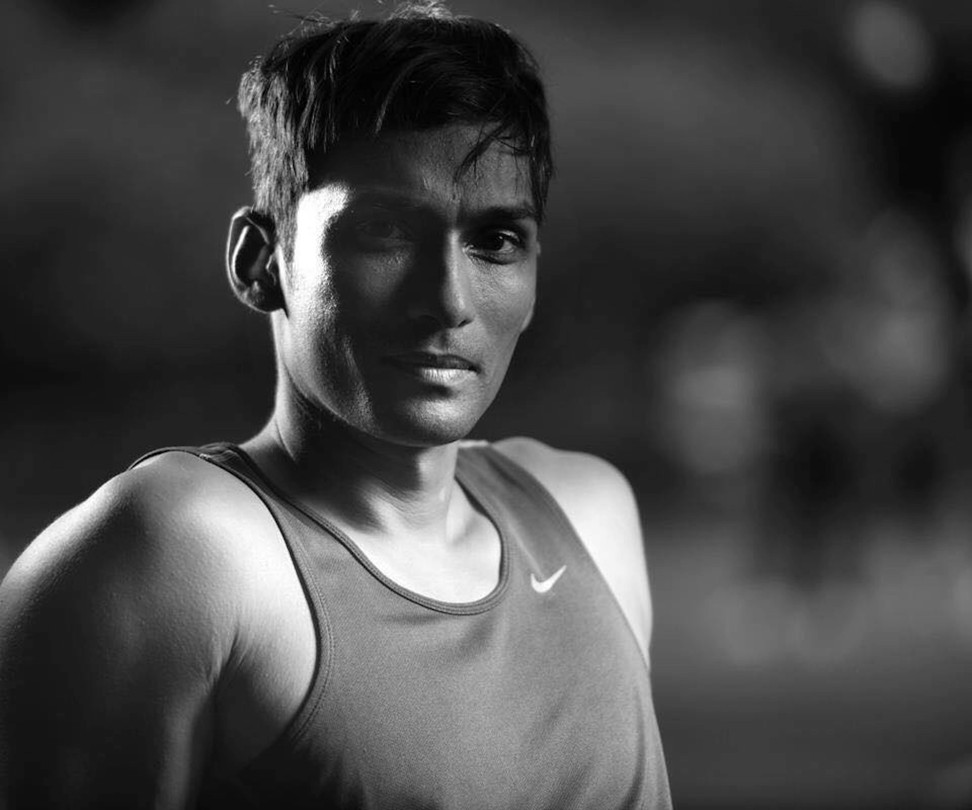
How much do you value a good night’s sleep?
Sleep was really important when I used to compete seriously. Sprint training is a high-intensity activity, so I needed my eight hours a night and I couldn’t afford to sleep at weird times. During competition week, late nights were definitely a no-no. Since fatigue tends to be cumulative, if I’d had a busy or stressful week at university, I would often feel it on the track and run slower as a result.
Now, I aim for six or seven hours of sleep a night. A lack of sleep can increase your stress levels and negatively affect your physical health.
How meditation improves your instinctive powers of intuition
How did you stay focused during a race?
Competitions are stressful enough, but when you throw in the media attention and the pressure to perform, it can feel quite overwhelming. My coach would try to calm my mind before a race so that I could focus on the technical aspects of my performance. It definitely helped to rid my mind of any external distractions.
The 100 metre race only lasts for about 10 seconds, so the slightest error can make a huge impact on the result. As such, it’s important to have clarity of thought as well as that mind-body connection. I probably would have benefited from some yoga … but 15 or 20 years ago, yoga wasn’t as popular as it is now.
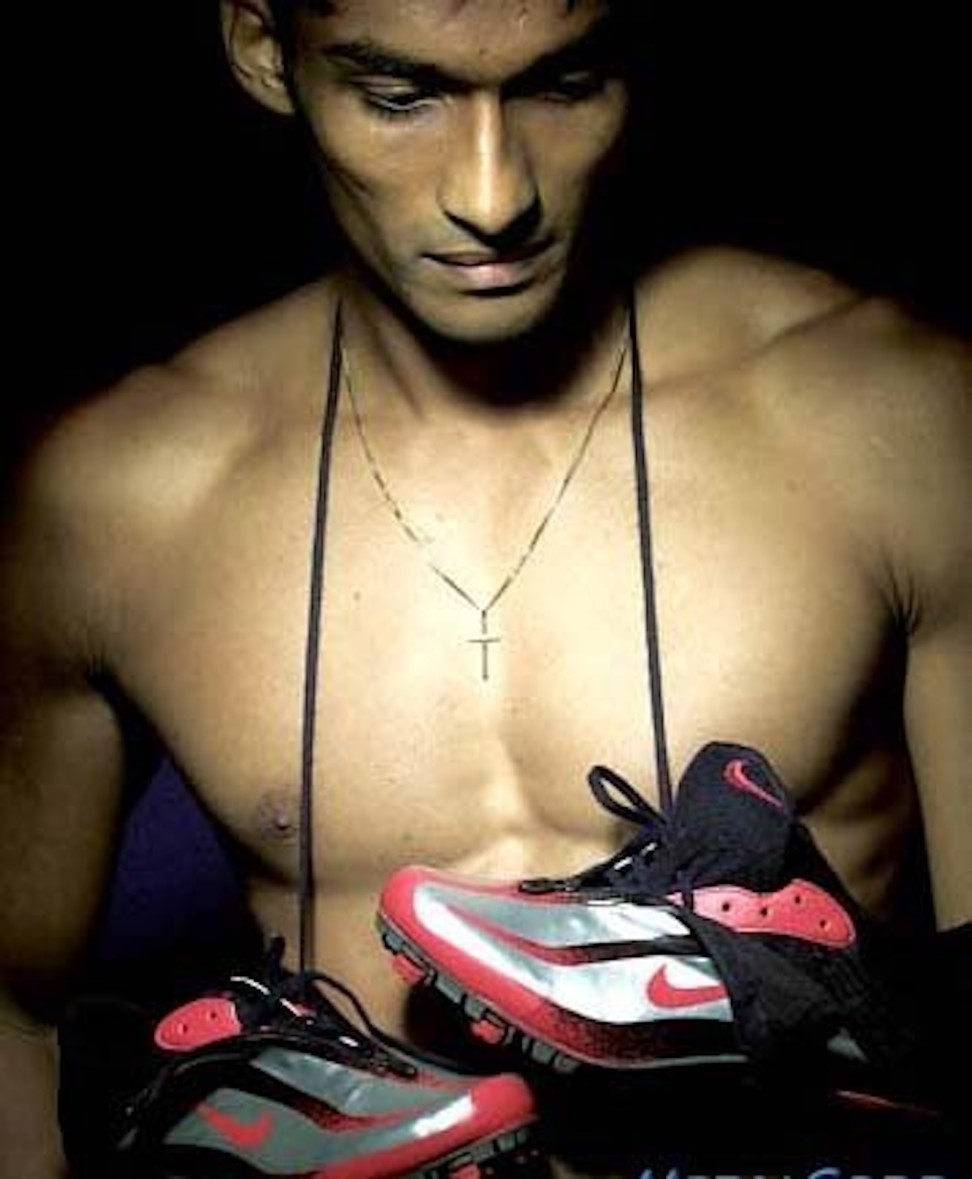
What did you take away from your career in sport?
One lesson that stuck with me is the importance of believing in yourself and fighting for what you’re passionate about. Sports has also inculcated in me a tenacity of spirit, which is useful when I’m dealing with life and faced with problems.
How workouts for kids improve their fitness and self-confidence
So many young people would rather play virtual games on their computers than go out and play real sports. … That’s such a waste. Playing sports nurtures your positive values. It builds self-belief, discipline, tenacity and resilience … every child, I believe, should be exposed to it at some point in their lives.
Playing sports and exercising regularly are also good for your body. It lowers your risk of disease, gives you energy and charges you up. I don’t know why anyone would choose a sedentary lifestyle over an active one.
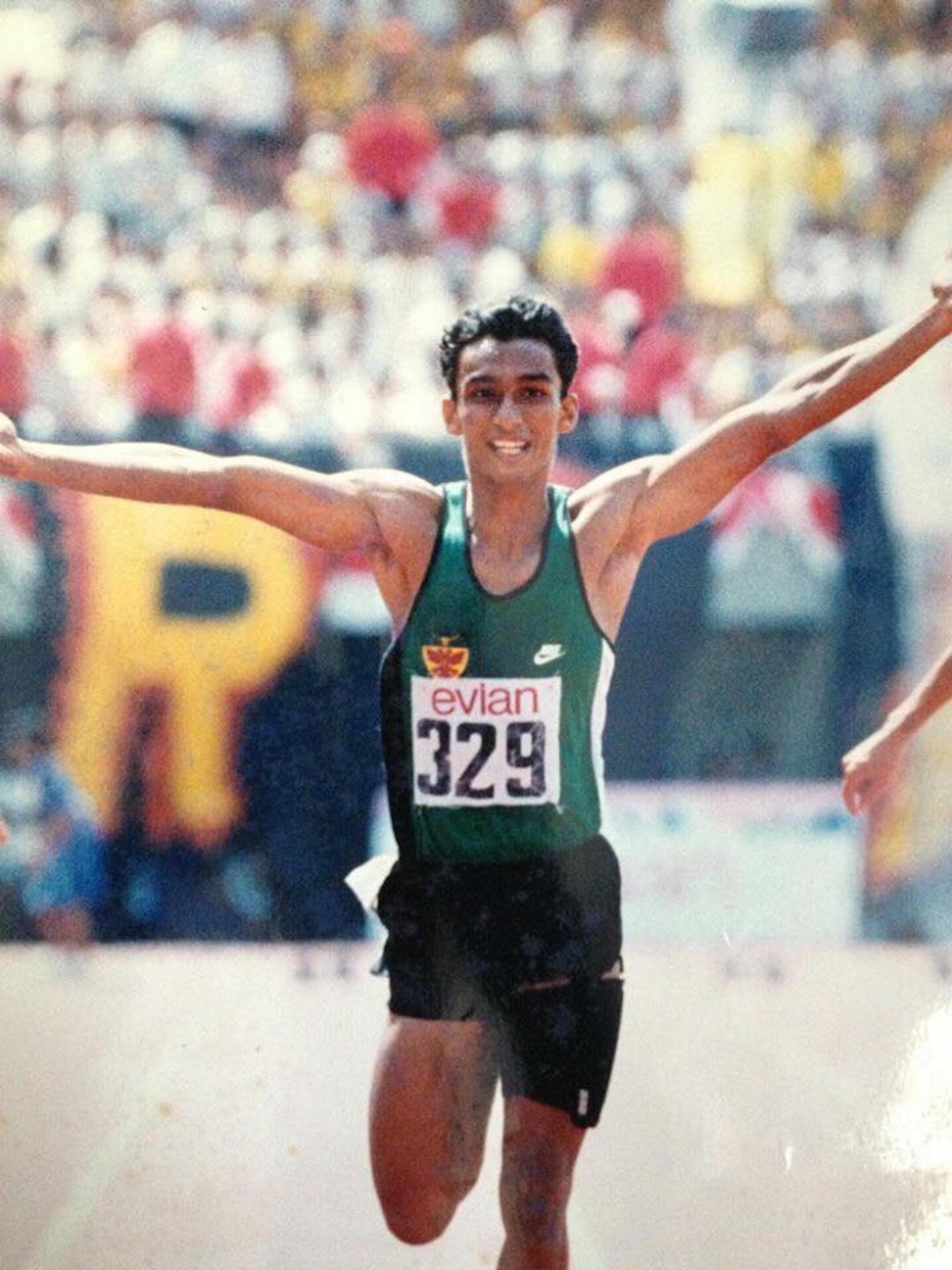
What advice do you have for keeping fit over 40?
You can still do most of the things you did when you were younger, unless you’re suffering from a serious injury or medical condition … Be consistent with your exercise routine. You have to exercise at least three times a week for it to have any significant impact on your health.
Strength training is important, too. Many older people avoid strength training because they think it’s for younger folks. Strength training is for everyone. It builds muscle, reduces fat, increases your metabolism, improves bone density, and staves off the physical aspects of ageing. Plus, it makes you feel good. Who doesn’t like knowing that they’re physically strong?
For information on Shyam’s new book, Running on Empty: The Story Behind 0.01s, visit ethosbooks.com.sg/products/running-on-empty

